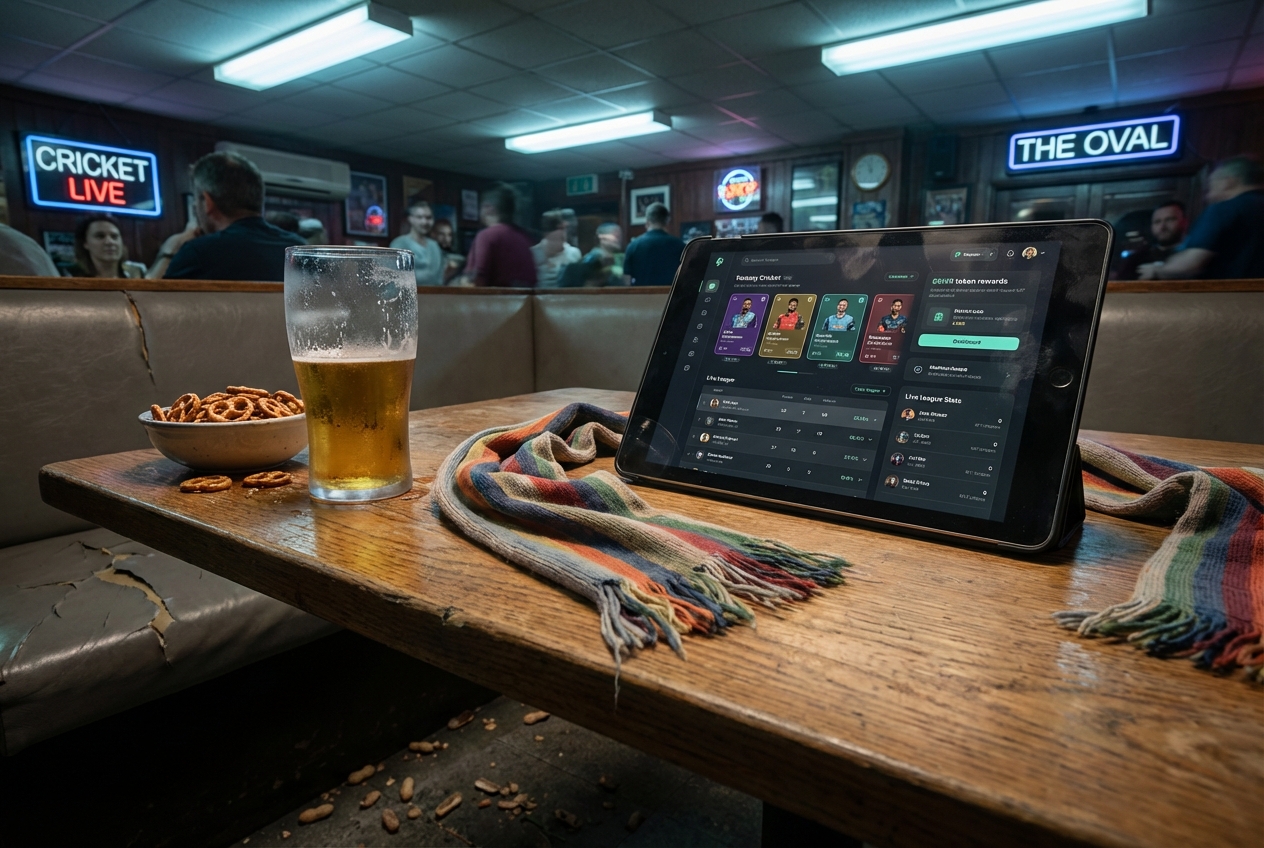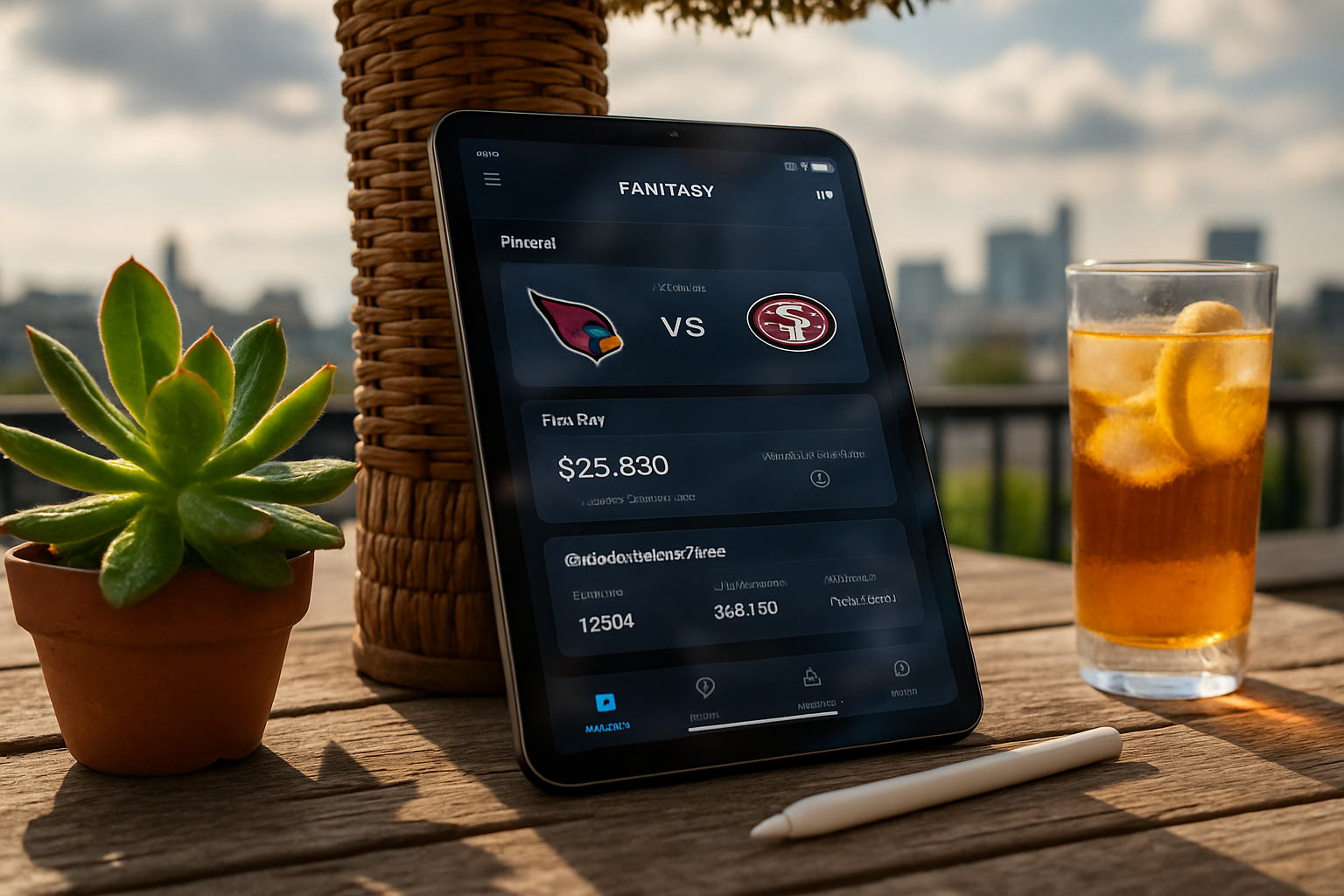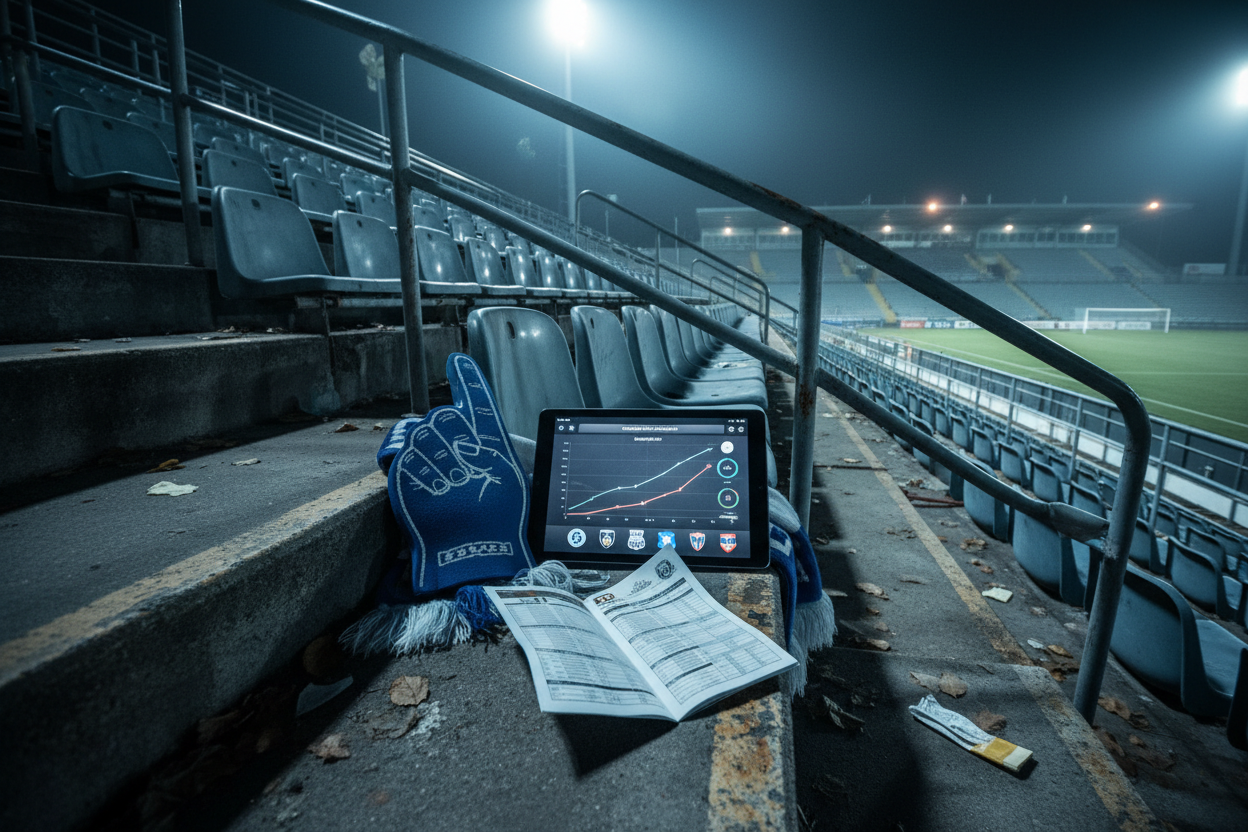
Blockchain technology is fundamentally reshaping the landscape of fantasy football, introducing a new era where on-chain sports rewards and verifiable ownership are not just marketing buzzwords, but core mechanics. This shift is redefining what it means to play and win in fantasy sports, creating real economic incentives for strategic players and transforming user engagement from a passive hobby to an active, data-driven investment.
Tokenized Ownership: The New Fantasy Football Asset Class
Traditional fantasy football platforms have long struggled with issues around transparency, prize distribution, and user trust. Blockchain-based platforms like Fantasy Ledger League (FLL) are addressing these challenges directly. FLL leverages the XRPL blockchain to tokenize team ownership: users can purchase digital team NFTs that grant management rights, voting power, and a share in league revenues. These NFTs can appreciate in value depending on team performance and community demand, turning what was once a fleeting season-long pastime into a potentially lucrative asset class.
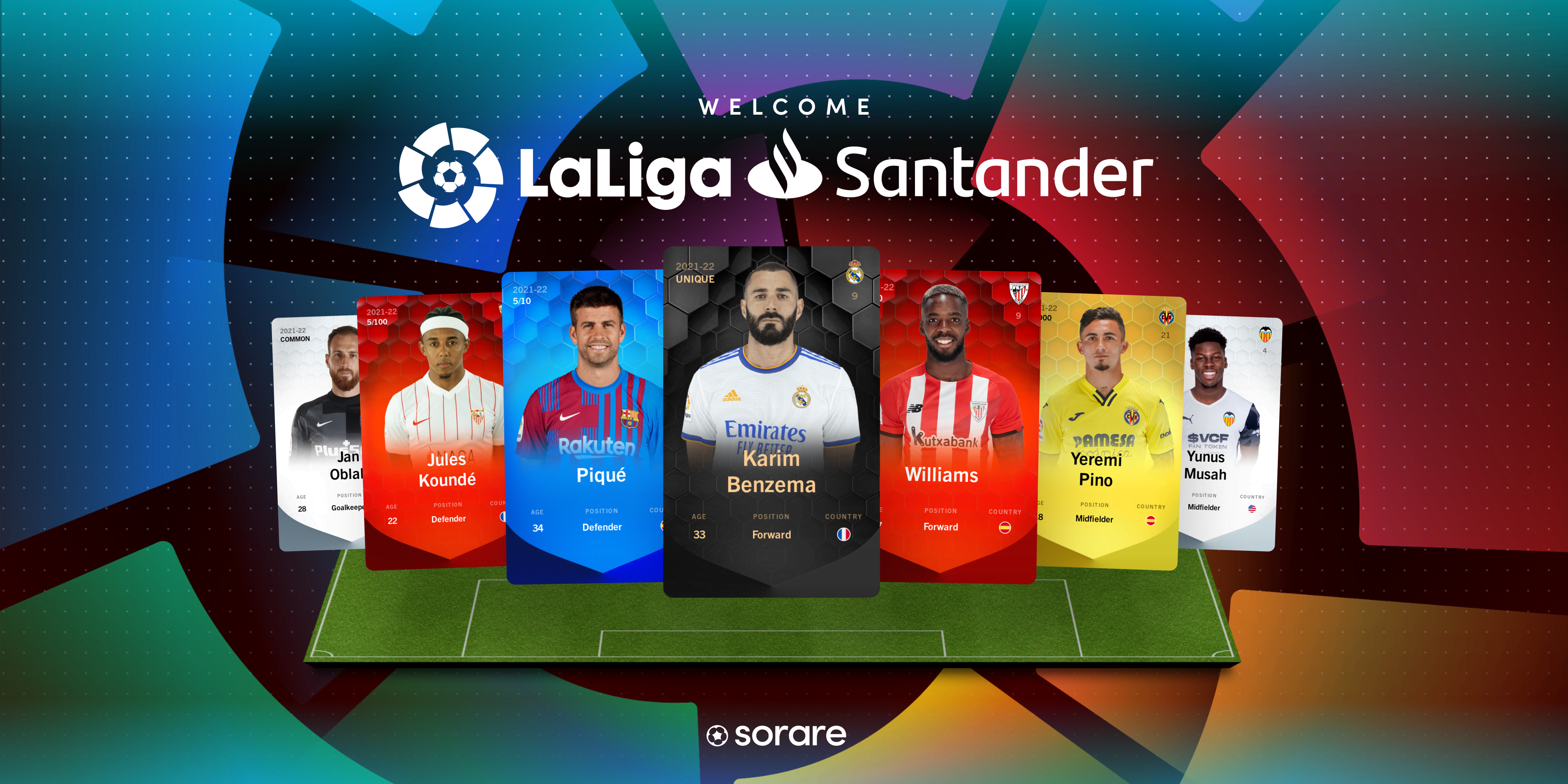
This model is not only more transparent but also more sustainable. By integrating with mainstream platforms like Yahoo Fantasy Football, FLL bridges Web2 familiarity with Web3 innovation, ensuring a seamless user experience while unlocking new monetization layers for both fans and token holders.
Player Shares and Decentralized Marketplaces: Profit from Your Football IQ
The rise of crypto fantasy sports has introduced another innovation: tokenized player shares. Platforms like Football.fun enable users to buy, sell, and trade shares of real-world football players. The value of each share fluctuates based on actual on-field performance, injuries, and transfer news – mirroring the dynamics of a live stock market, but for athletes. This means a savvy user who spots an undervalued player before a breakout can see significant returns if their prediction proves accurate.
“Fantasy sports on blockchain offer new ways to earn. Users can earn enough to quit day jobs as with other decentralized gaming platforms. “ – CoinFantasy
Decentralized marketplaces also ensure that all transactions are recorded immutably on-chain, eliminating disputes over trades or payouts. This level of transparency is a major selling point for users wary of centralized operators or opaque scoring systems.
NFT-Based Fantasy Games: Sorare Leads the Charge
Perhaps the most visible face of blockchain fantasy football is Sorare. By leveraging Ethereum-based NFTs, Sorare allows users to collect, trade, and compete with officially licensed digital player cards from top leagues worldwide. Each card is a unique NFT, with scarcity and authenticity verifiable on-chain. Players build squads and enter tournaments, with rankings determined by real-world performances – and the top performers win cash prizes or rare cards that can be resold or used to strengthen future lineups.
Top Blockchain Fantasy Football Platforms & Unique Rewards
-
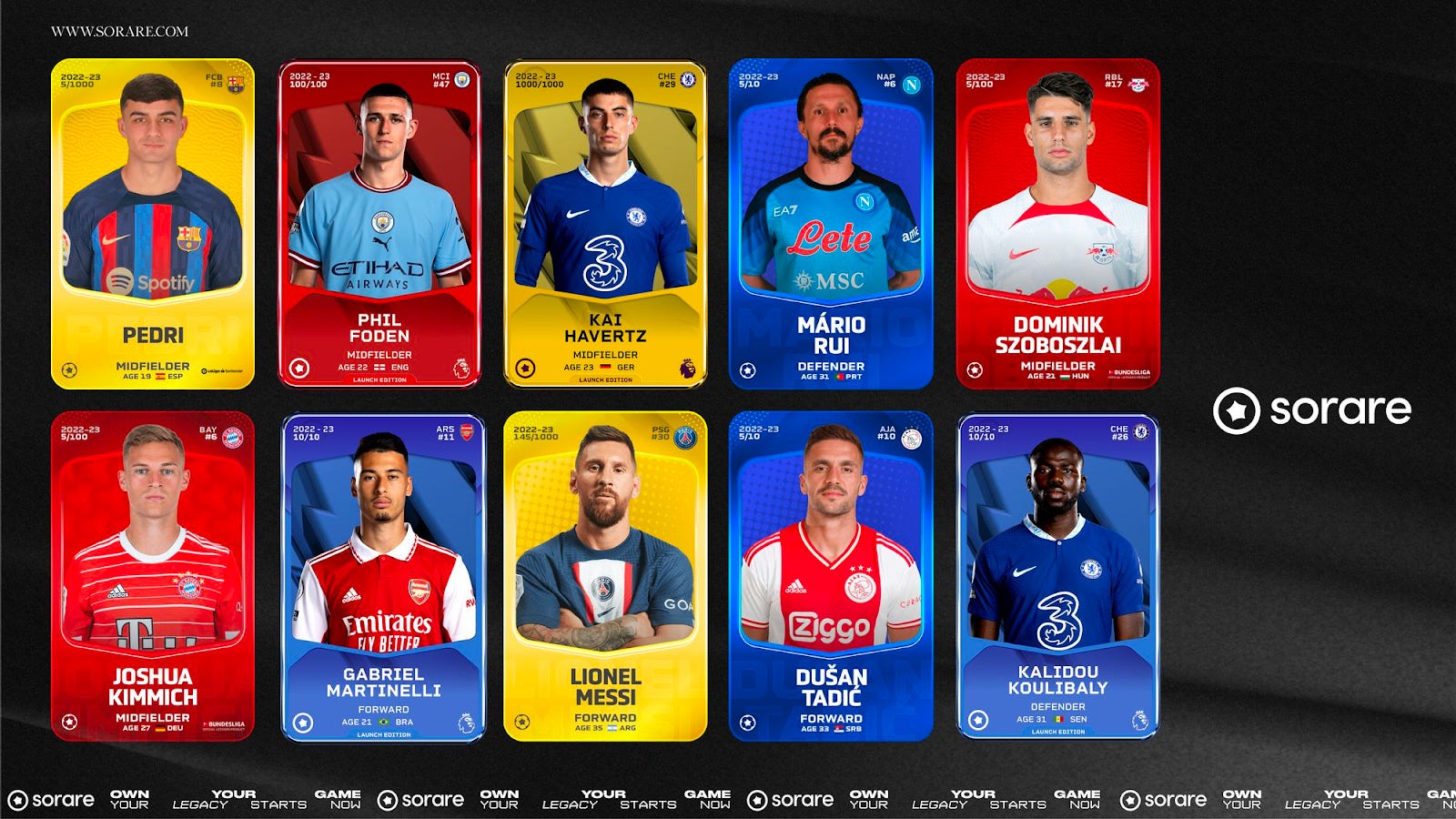
Sorare: Compete in global fantasy football using officially licensed NFT player cards on the Ethereum blockchain. Players can collect, trade, and use digital cards to build teams, with rewards including cash prizes, exclusive experiences, and rare digital collectibles based on real-world performance.
-
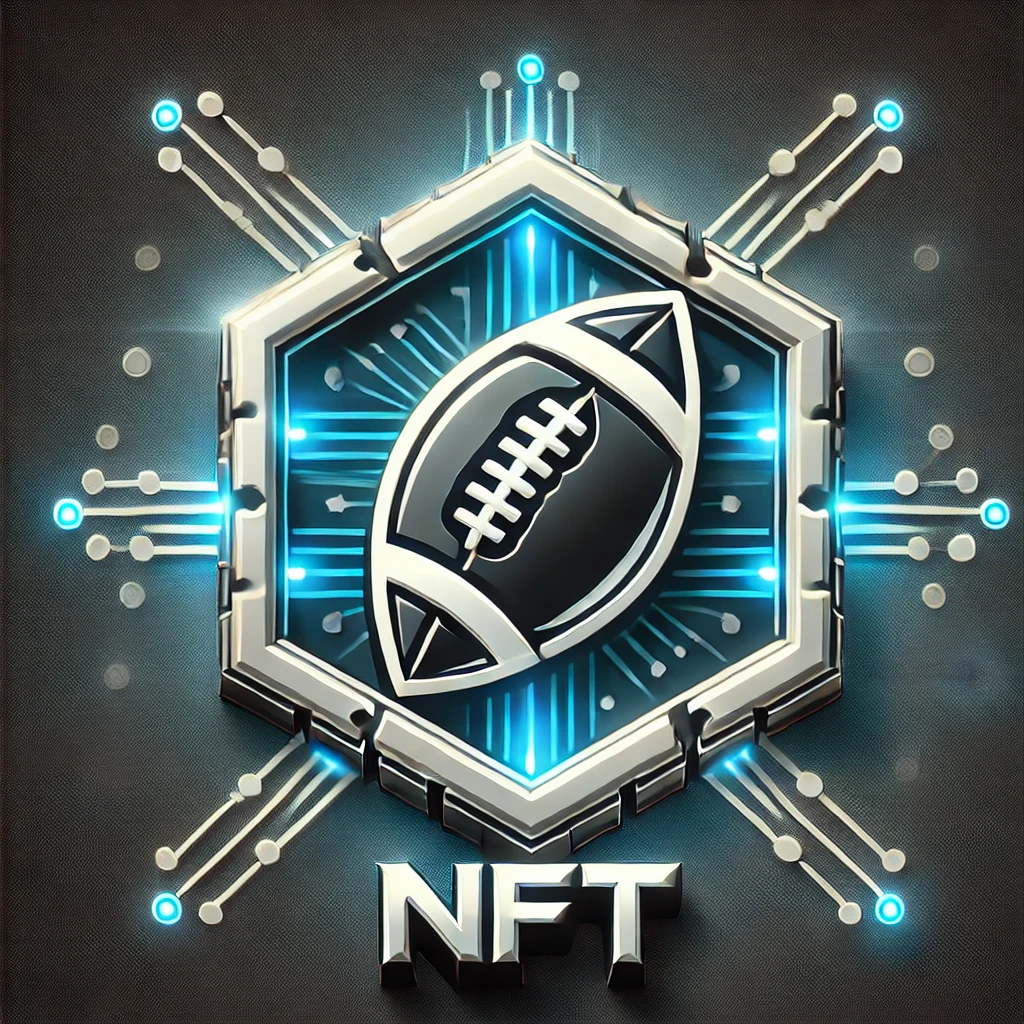
Fantasy Ledger League (FLL): Own digital team NFTs that grant management rights and potential value appreciation. FLL integrates with Yahoo Fantasy Football and leverages the XRPL blockchain, distributing rewards to team owners and token holders as the league succeeds.
-
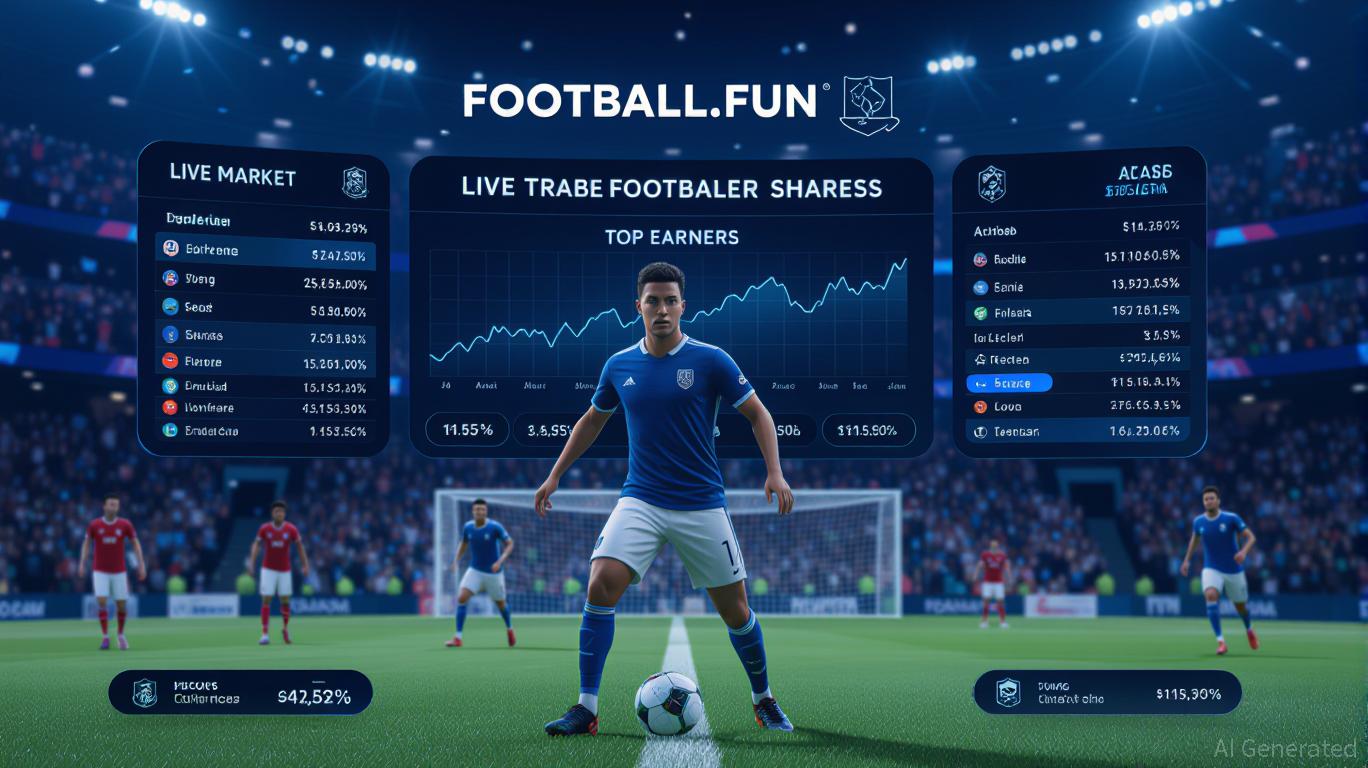
Football.fun: Trade tokenized player shares and build squads to compete in biweekly on-chain tournaments. Player shares function as tradable crypto tokens, with values tied to real-world football performance, enabling users to profit from strategic picks and football knowledge.
-
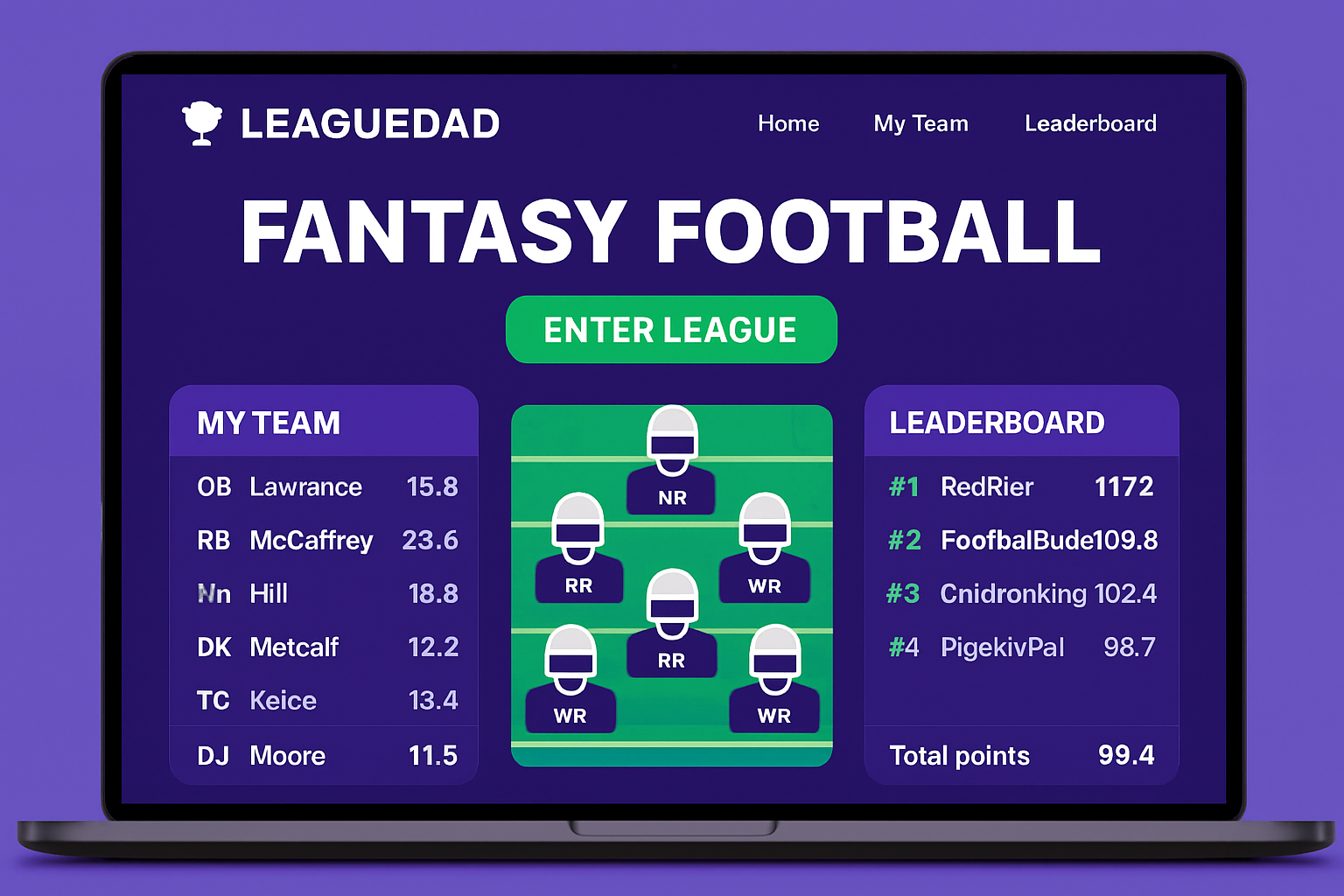
LeagueDAO: Participate in decentralized, tokenized fantasy football leagues. Player tokens are used in open competitions, and rewards are distributed directly based on real-world stats through smart contracts, ensuring transparency and fairness.
-

Fanton: A Telegram-based fantasy football game where users build teams using free or NFT player cards. Players compete in tournaments to earn crypto rewards and in-game assets, with all transactions and rewards managed on-chain for transparency.
This play-to-earn model is not theoretical: Sorare has distributed millions in prizes and continues to attract both football fans and crypto investors seeking new ways to monetize their knowledge. The platform’s official licensing deals with leagues and clubs add a layer of legitimacy that has been lacking in earlier crypto sports projects.
Legal and Regulatory Landscape: Navigating New Frontiers
The rapid evolution of blockchain sports platforms has not gone unnoticed by regulators. In July 2024, a U. S. District Judge in Boston ruled that DraftKings’ digital trading cards – used in their fantasy sports platform – are securities, allowing a lawsuit by customers to proceed. This precedent underscores the need for platforms to prioritize compliance and user protection as the line between gaming, investing, and gambling blurs in the on-chain era.
Regulatory scrutiny is likely to intensify as the sector matures, especially given the increasing overlap between fantasy sports, digital assets, and real-money rewards. For users, this means that due diligence is more important than ever. Platforms that emphasize transparency, fair play, and compliance will be best positioned to thrive as the regulatory environment evolves. For developers and investors, legal clarity will be essential for scaling operations and attracting mainstream adoption.
Real Rewards and the Future of On-Chain Fantasy Football
The most compelling value proposition of blockchain fantasy football is the tangible, real-world rewards tied directly to strategic decision-making. Unlike traditional platforms, where rewards are often limited to bragging rights or modest prizes, on-chain fantasy sports now offer substantial incentives: cash payouts, rare NFTs, and even unique experiences like VIP match tickets or signed memorabilia. For example, Sorare’s top tournament finishers have reported winning once-in-a-lifetime experiences and exclusive merchandise, while Football. fun’s model lets users benefit financially from their football expertise in a transparent, liquid market.
These innovations are not just theoretical or niche. According to data from PlayToEarn and CoinFantasy, users on leading platforms have consistently earned enough to make fantasy sports a serious side hustle, or even a primary income stream in some cases. The combination of provable scarcity, on-chain transparency, and instant settlement is fundamentally changing user behavior and expectations.
Top Fantasy Football Tournaments With Real-World Blockchain Rewards
-

Sorare Global Fantasy Football: Compete using officially licensed digital player cards (NFTs) from top leagues. Prizes include weekly cash rewards, exclusive signed merchandise, VIP match tickets, and rare NFT cards—all based on real-world football performance.
-
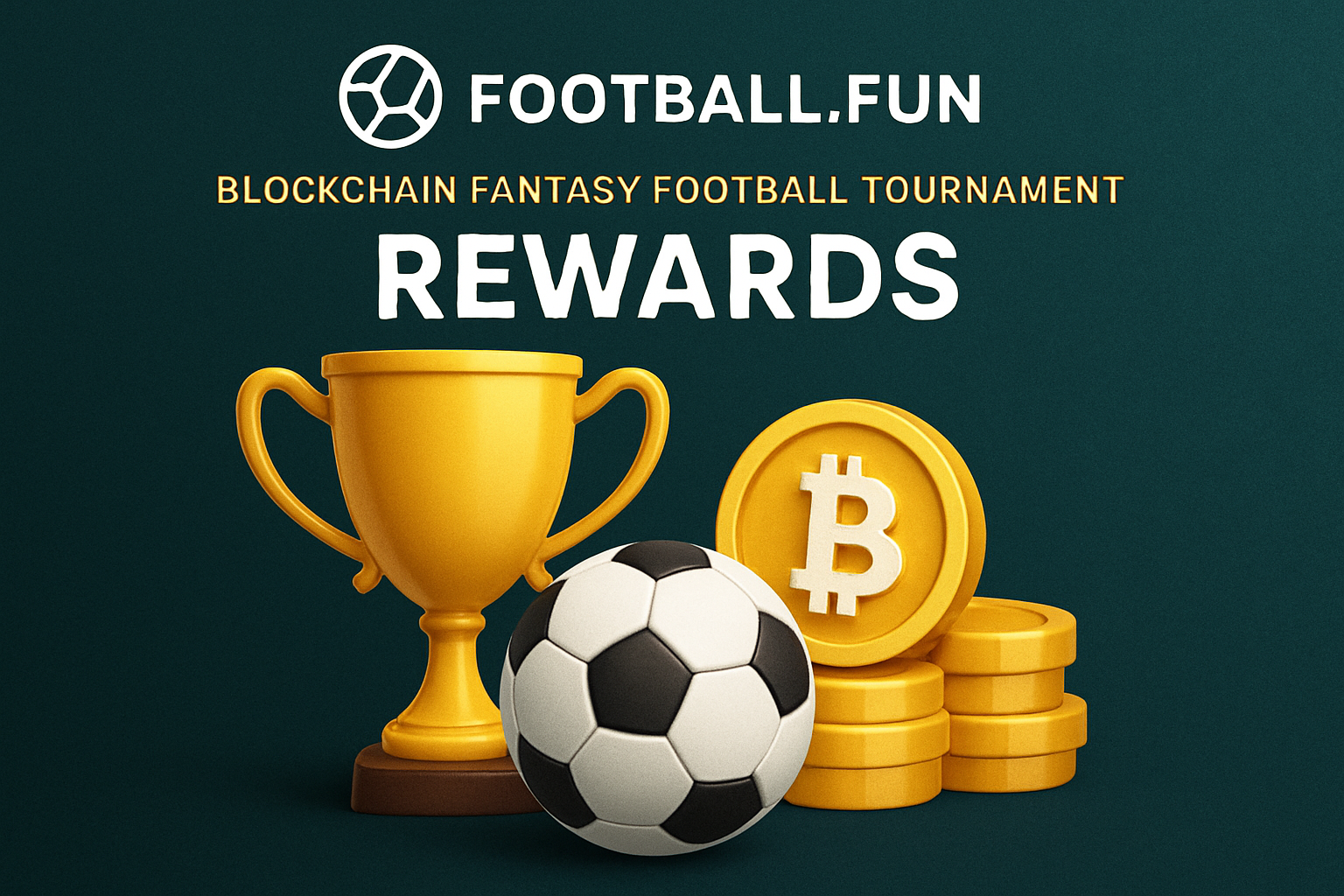
Football.Fun Biweekly Tournaments: Build squads by trading tokenized player shares. Winners earn cryptocurrency payouts, tradable player tokens, and leaderboard bonuses directly linked to real match outcomes.
-

Fantasy Ledger League (FLL) Tokenized Team Competitions: Own and manage NFT-based teams integrated with Yahoo Fantasy Football. Top performers receive profit-sharing payouts, team NFT appreciation, and exclusive management rights within a decentralized league ecosystem.
-
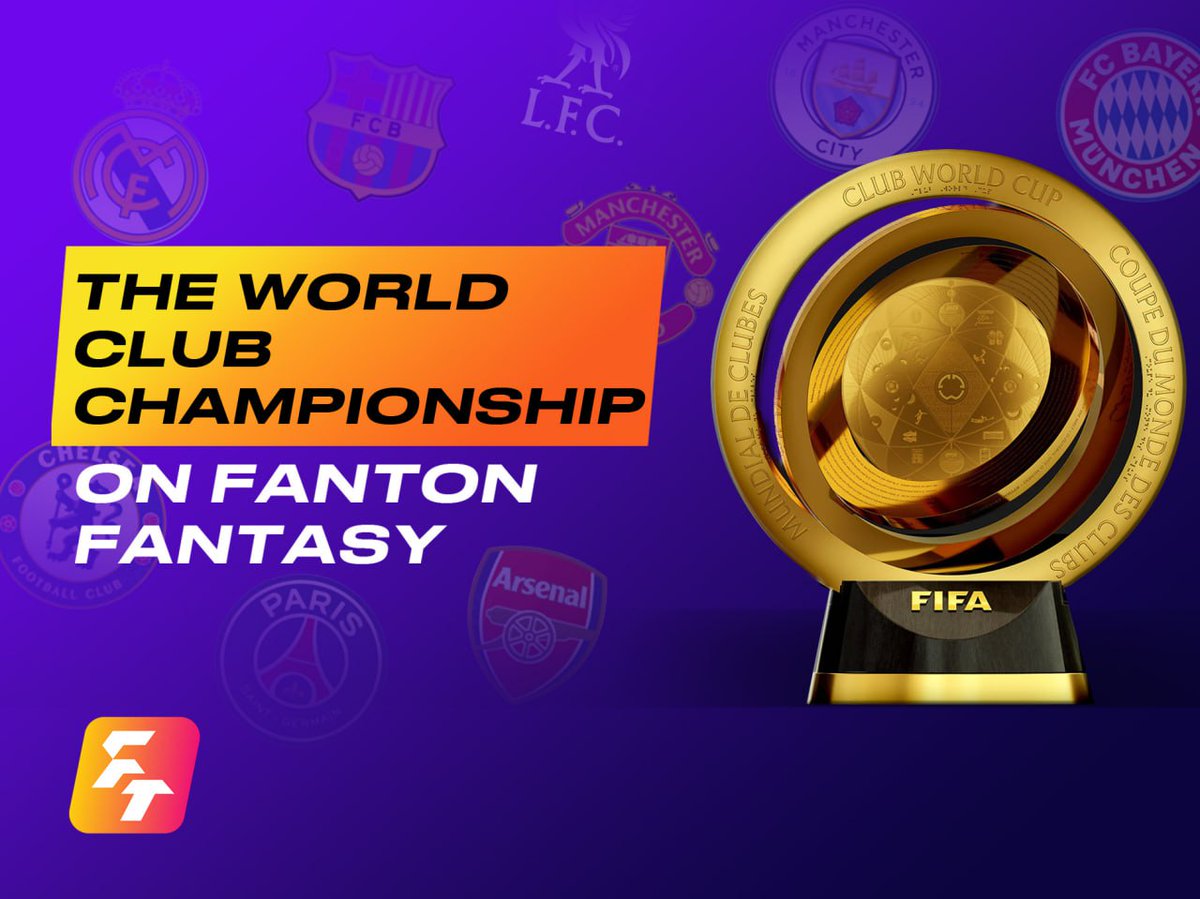
Fanton Fantasy Football Tournaments: Play via Telegram using free or NFT cards. Earn rewards in cryptocurrency, NFT upgrades, and access to special in-game events for high-ranking teams each season.
-
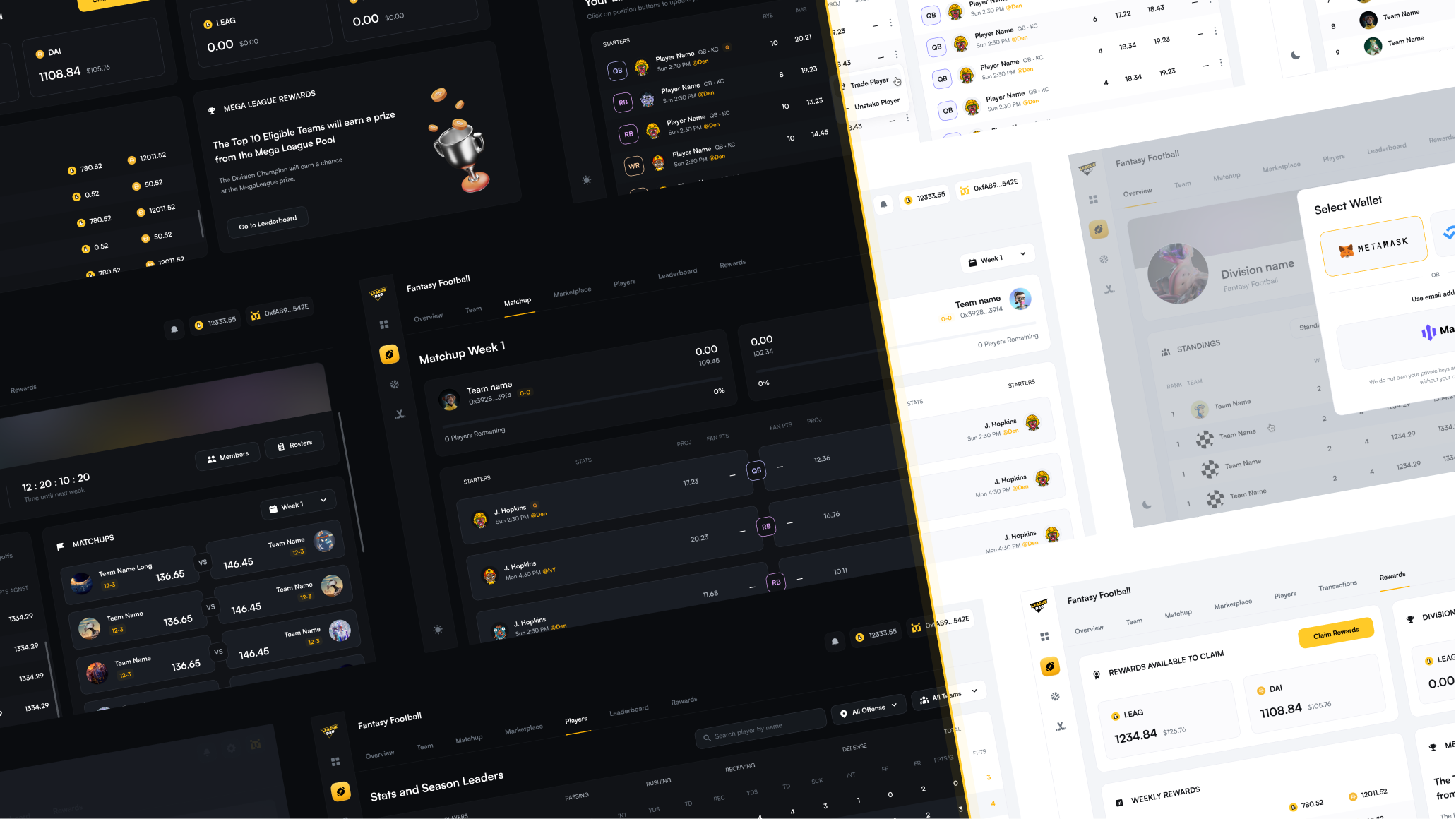
LeagueDAO Open Fantasy Leagues: Join decentralized, tokenized fantasy football leagues where real-world stats drive weekly crypto rewards and token distributions to top managers.
For those with a sharp football mind and a willingness to embrace new technology, the opportunity set is only expanding. The play-to-earn model, pioneered by platforms like Sorare and Football. fun, is rapidly gaining traction as users seek more meaningful engagement and upside from their sports fandom. The ability to trade, hold, or strategically deploy digital assets adds a new layer of complexity and reward potential that simply didn’t exist in the Web2 era.
Key Takeaways for Fantasy Football Managers
As blockchain-powered fantasy sports continue to grow, a few critical trends are emerging:
- Tokenized assets (teams, players, shares) are driving deeper engagement and creating new monetization paths.
- Decentralized marketplaces ensure fair trading, instant payouts, and transparent scoring.
- Legal clarity is increasingly important as platforms evolve from games to investment vehicles.
- Real-world rewards are no longer a gimmick but a core feature, attracting a new generation of data-driven sports fans.
Ultimately, blockchain is not just making fantasy football more transparent and secure; it is redefining what it means to play, win, and profit from sports knowledge. As regulation catches up and platforms mature, expect the line between sports fandom and financial opportunity to blur even further – with data-driven managers leading the charge.




